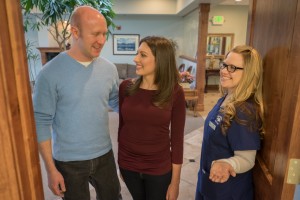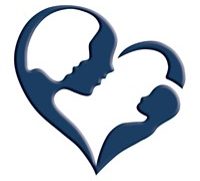Impact of Age On Fertility Potential

Nevada Center for Reproductive Medicine, in Reno, has seen a recent interest in the reproductive capability of older women. This has been prompted by the unprecedented numbers of couples presenting for infertility treatment after delaying childbearing into their late 30’s and 40’s.
The impact of aging on fertility has become increasingly relevant as one out of every five American women is having her first child after the age of 35.
Female fertility starts slowly declining after 20 years of age. This is because a woman is born with a finite supply of eggs, approximately 300,000. Only a few hundred eggs will ovulate during a woman’s reproductive lifespan, whereas the vast majority of eggs die off continuously by a process called atresia.
The eggs that ovulate earlier in a woman’s lifetime have a higher energy supply than the eggs that ovulate in the later reproductive years of a woman’s lifetime. Just as a younger woman has more energy than an elderly woman, a younger egg has more energy than that of an older egg. Much energy is needed for the egg to complete fertilization and to control the chromosomes and genetic material during meiosis.

Demographic studies demonstrate a consistent decline in fecundity after age 30 to 35. It is twice as hard for a woman to conceive at age 35 as it is at age 25. In women over 40 years of age, involuntary infertility approaches 65% of women. As a woman ages, there are both decreased monthly fertility rates (fecundity) and an increased miscarriage rate.
The dominant factor that causes age related reduced fertility is the decline in egg quality. This decline is marked by an acceleration in follicular atresia, and increased rate of chromosomal abnormalities in resultant embryos, and decreased ovarian reserve.
Follicle stimulating hormone (FSH) and antimullarian hormone (AMH) are surrogate markers of ovarian reserve. Age related increased miscarriage rates are largely due to increased number of genetic abnormalities in resultant embryos.
Both age and ovarian reserve make independent contributions when predicting response to fertility hormone stimulation. A woman of advanced reproductive age with a normal ovarian reserve marker still has to contend with age related decline in fertility due to diminished egg quality.
Because invitro fertilization (IVF) success rates are proportional to the number of eggs that are retrieved, fertilized, and transferred, age-related low responders with poor follicular development have diminished pregnancy rates.
Women aged 44 years and older often proceed directly to oocyte donation to increase their chances of having a healthy child. Oocyte donation has become a viable option for those women whose infertility is age-related. Oocytes collected from superovulated donors are fertilized with sperm from the patient’s husband.
The resulting embryos are then transferred to the recipient who has been treated with estrogen and progesterone to produce an endometrial environment suitable for implantation. Excellent success rates can be achieved through oocyte donation in women up to and beyond the age of 50 years.
Interested In Your Fertility Options?
Call Us At (775) 828-1200, Or
CLICK HERE To Contact Us Online.
Start Your Journey Today!


